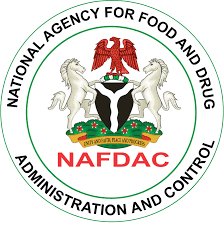By Nkechi Eze
The National Agency for Food and Drug Administration and Control (NAFDAC) has launched three far-reaching health initiatives designed to reinforce Nigeria’s public health systems and protect the nation’s most vulnerable citizens, women and children.
The initiatives, unveiled in Abuja under the visionary leadership of the Director General of NAFDAC, Professor Mojisola Adeyeye, include the Maternal, Newborn, and Child Health + Nutrition (MNCH+N) Initiative, the NAFDAC Office of Women and Children’s Health (NOWCH), and the National Action Plan on Prevention, Detection, and Response to Substandard and Falsified Medical Products (2023–2027).
Speaking during the official launch, Professor Adeyeye described the event as a defining moment in NAFDAC’s drive to safeguard public health and ensure equitable access to safe, effective, and quality medical products and nutrition interventions across Nigeria.
“These initiatives are not isolated projects, they are interconnected pillars that reflect NAFDAC’s unwavering commitment to protecting the most vulnerable among us, especially women and children, while ensuring that every medical product and nutrition intervention in Nigeria is safe, effective, and of assured quality,” she said.
The Director General explained that the newly established Office of Women and Children’s Health will serve as a central platform for promoting safe motherhood, rational medicine use, breastfeeding advocacy, and the elimination of harmful practices such as drug misuse and unsafe cosmetics. The office, she added, would also support the local production of paediatric medicines and menstrual hygiene products through strategic partnerships with government ministries, non-governmental organisations, and the private sector.
The MNCH+N Initiative, according to Professor Adeyeye, further expands NAFDAC’s vision by tackling the pressing issues of malnutrition, maternal mortality, and child survival. Through strengthened regulation of life-saving nutrition commodities and the enforcement of breastfeeding-friendly policies, NAFDAC aims to foster healthier, more resilient generations. She acknowledged ongoing partnerships with global organisations such as the World Health Organization (WHO), UNICEF, and the Global Alliance for Improved Nutrition (GAIN), which she said continue to bolster Nigeria’s nutrition regulatory systems for sustainable impact.
On the third component, the National Action Plan on Substandard and Falsified Medical Products, Professor Adeyeye stated that it offers a coordinated national response framework to protect citizens from unsafe medicines and fraudulent health products. The plan, she noted, is built on three key pillars, prevention, detection, and response, and seeks to mobilise both national and international stakeholders to strengthen supply chain integrity, improve transparency, and ensure accountability throughout the healthcare ecosystem.
“These combined efforts reflect NAFDAC’s leadership and vision, a vision where no mother dies from preventable causes, no child suffers from malnutrition, and no patient is harmed by falsified medical products,” she declared.
Professor Adeyeye called on all partners, stakeholders, and citizens to rally behind NAFDAC’s renewed mission to create a safer, healthier Nigeria.
“Together, let us continue to support NAFDAC in advancing a future where access to safe medicines, adequate nutrition, and quality healthcare is not a privilege, but a right for every Nigerian,” she concluded.
The launch of these strategic initiatives reaffirms NAFDAC’s role as a cornerstone of Nigeria’s public health architecture, advancing national and global efforts to safeguard lives and ensure that every citizen, particularly women and children thrives in an environment of safety, wellness, and dignity.

















